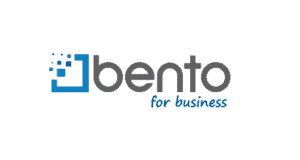You pride yourself on running a firm that adapts and responds to unique challenges. Although it’s impossible to predict where business might take you in the future, you’ve managed to implement a system that dispatches qualified, trusted personnel to hotspots as needed and empowers them to make critical spending decisions.
This isn’t to say that you couldn’t stand to improve, however. Your business model means that you inevitably spend irrecoverable time and money on activities like expense reimbursement, tracking and management. You’re beginning to get the sneaking suspicion that there are better ways to allocate your limited resources.
The Perils of Expense Management
Expense tracking is a vital aspect of operating a solvent enterprise, especially for growing companies. Small and medium-sized businesses, or SMBs, can’t possibly route all of their purchases through a central manager or other authority figures for final approval. Instead, they’re forced to analyze them in detail after the fact to ensure that:
- Accounting procedures are accurate,
- Employees aren’t committing fraud, and
- Corporate purchases actually further organizational missions.
Unfortunately, these necessary processes can be incredibly time-consuming. A 2017 Expense Management Trends report by Certify, a company that provides expense oversight software, discovered that 97 percent of companies with expense policies checked each item manually. The same assessment showed that 57 percent of SMBs experienced problems with employees misplacing the paper receipts that were vital for expense verification. Other problems included:
- Mismatched records from different sources,
- Expense report coding and account mistakes,
- Employees not submitting data in a timely fashion, and
- Controllers spending undue amounts of time trying to align, assess and approve reports.
Rethinking Reimbursement
Does this mean that you’d be better off without reporting your expenses at all? The $50 billion lost to employee theft each year in the U.S. suggests that completely abandoning expense tracking isn’t such a wise move.Why not transition to a system that makes it easier to track expenses and institute effective spending policies? Years ago, this would have seemed like a pie-in-the-sky concept, but today’s connected digital technology places it well within reach. Companies that formerly used to struggle with expense reimbursement are steadily migrating towards prepaid business debit cards that let them:
- Eliminate paper receipts and the need to scan, photograph or store reams of hardcopy documentation,
- Instantly see what each employee purchases to keep an eye on potentially unauthorized usages,
- Reduce staff workloads,
- Set limits on spending based on individual purchase cards, employees, transaction types and other criteria.
What kind of solution could offer such perks?
Bento for Business makes it all possible, and at an introductory price of $29 per month for up to 10 cards, it’s easy to understand the overwhelming appeal. In addition to offering a 60-day free trial, this prepaid debit solution uses secure SSL technology to keep business owners aware of what their employees are doing with the funds that they’ve been assigned. Since the information is available 24/7 starting the moment it gets generated, accurate tracking happens by default, and preloading the cards with your own funds means that you don’t have to worry about expense reimbursement at all.
Corporate leaders shoulder many burdens. Why not let Bento for Business handle some of the heavy lifting? Simplify your accounting processes by calling 866.220.8455 or starting your free 60 day trial today.






